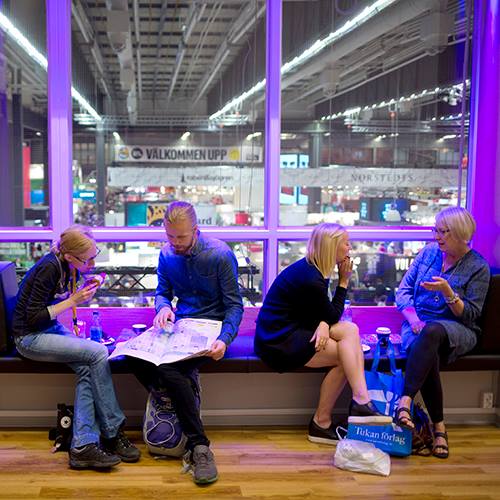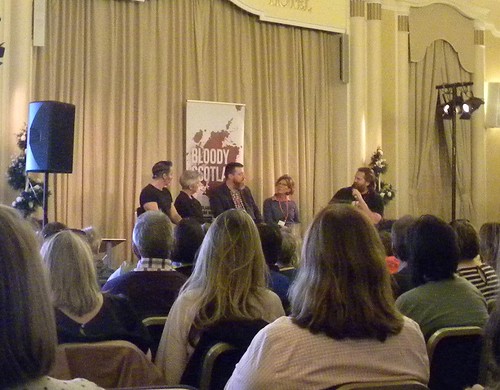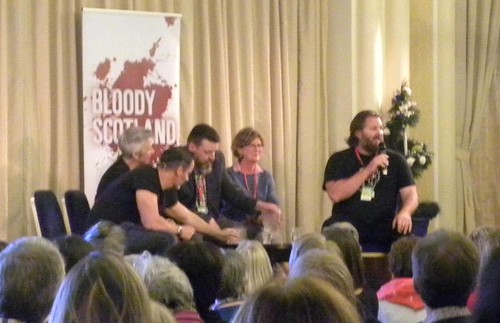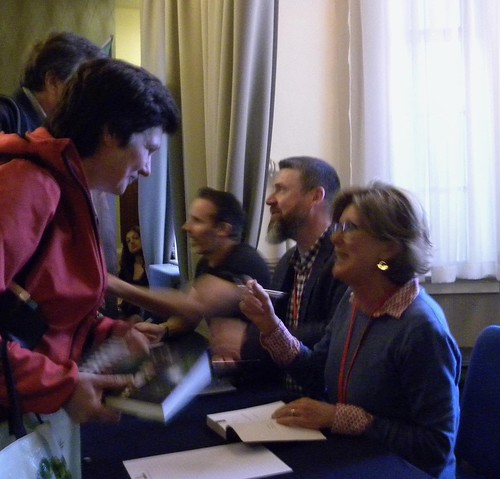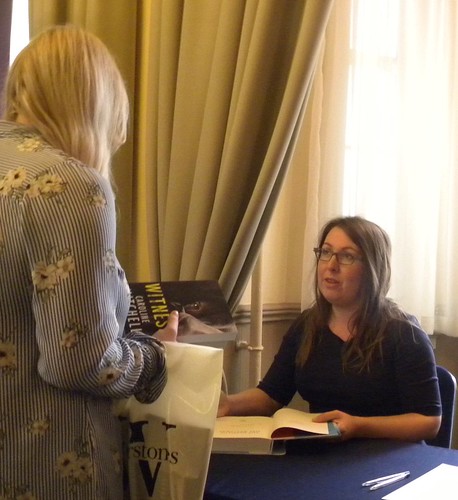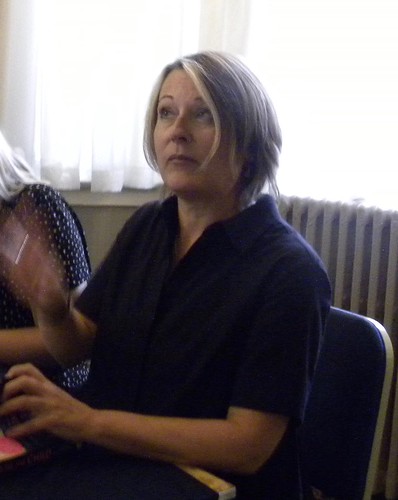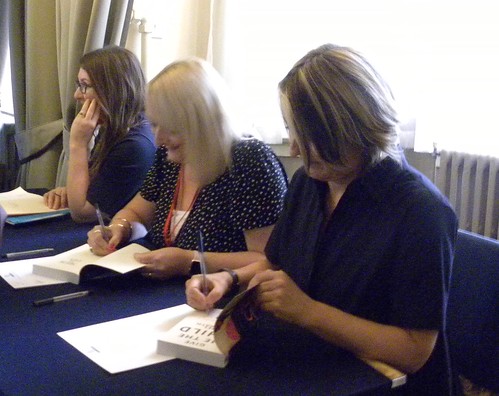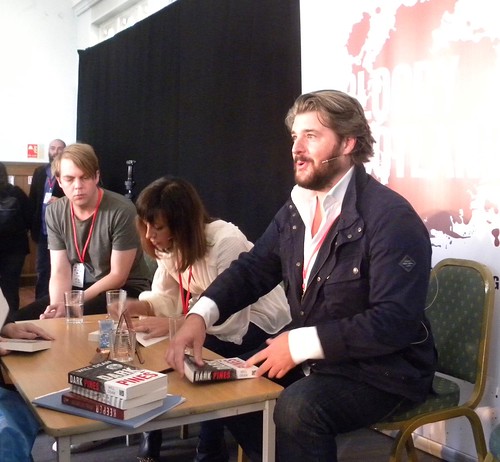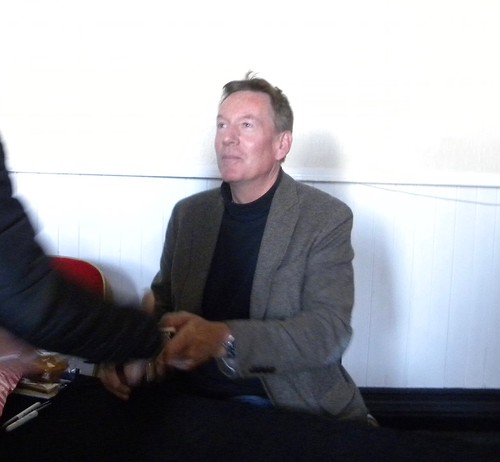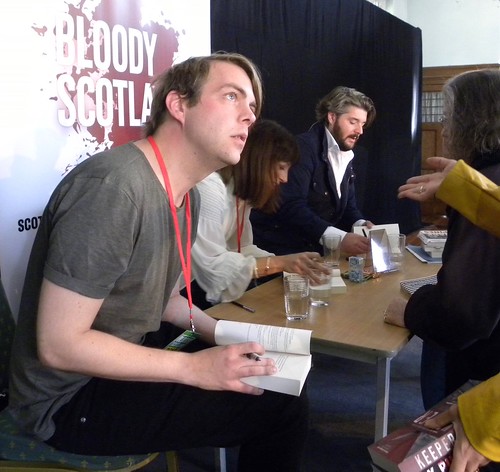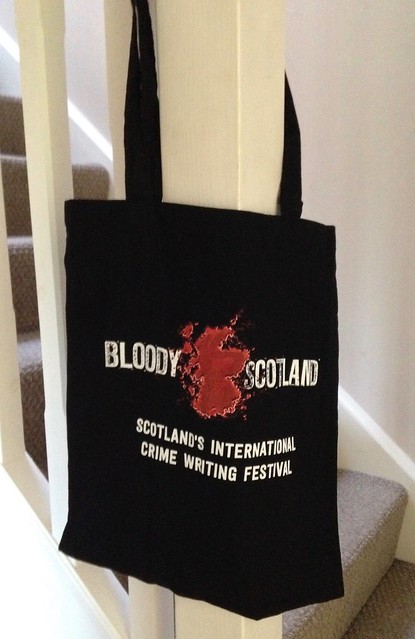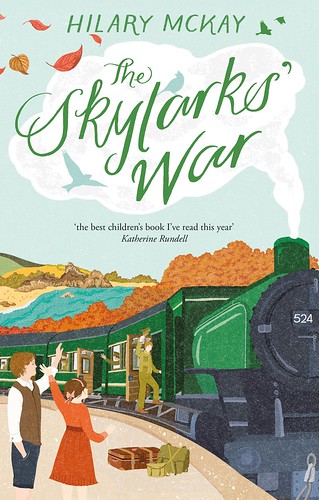‘Nu sätter vi igång, eller hur?’ said Jacky Collins to her three charges Christoffer Carlsson, Johana Gustawsson and Will Dean. They all agreed to some ‘sätting igång’ and did so to a full to bursting Allan Park South Church where people were standing in the aisles.
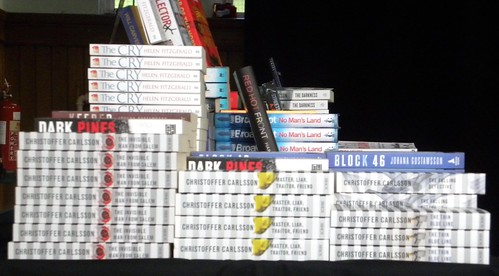
First she wanted to know about Will Dean’s building a cottage made of wood, in a Swedish forest, somewhere ‘north’ of Gothenburg, so he went ahead and ruined her vision of a strong man with an axe. It was more flatpack, and he mainly supervised the build courtesy of that airline that flies people places for £10. But at least Will and his Swedish wife got out of their tiny London flat.
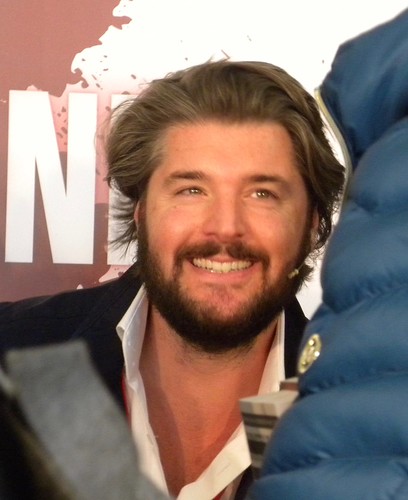
You will already have gathered not all Jacky’s Swedes were Swedish.
Johana Gustawsson, who is French, and maybe a little Spanish, blames everything on her Swedish husband, as well she should. After all, a man who eats flat pieces of bread with cheese on, squeezing cod roe paste from a tube on top of it all, for breakfast, has a lot to answer for. (It’s probably only my vivid imagination which had him dunk this in his coffee.) The Resident IT Consultant listened wide-eyed to this tale, as not even his extensive Swedish experience ever went this far.
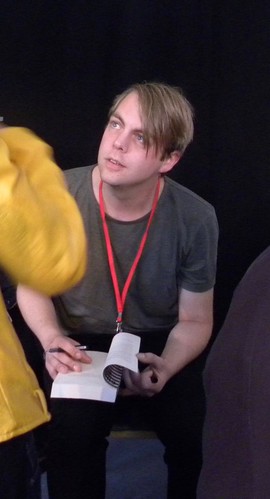
Christoffer Carlsson who comes from the same town as Roxette, nevertheless feels it’s natural to write about Stockholm, which is not the same as Halmstad. He didn’t get the promised ABBA number, which is just as well, since he’s far too young for them. Christoffer likes people; is interested in them, even. And he interviews offenders for a living.
Then there was the tale about his childhood friend’s dad who, ahem, created illegal alcoholic drinks at home in the kitchen, when the local policeman called. (He obviously only wanted to buy some.)
Will introduced us to Tuva Moodysson, his deaf journalist detective. After his first horrible book, it is fun writing about Tuva. Johana explained that she needed a Canadian character so that they could speak both English and French. Her women characters really have opinions. Christoffer also has some ‘bad’ early books, which ‘unfortunately’ have been published. He wanted to write about friendship, and only reluctantly made one of his characters a policeman.
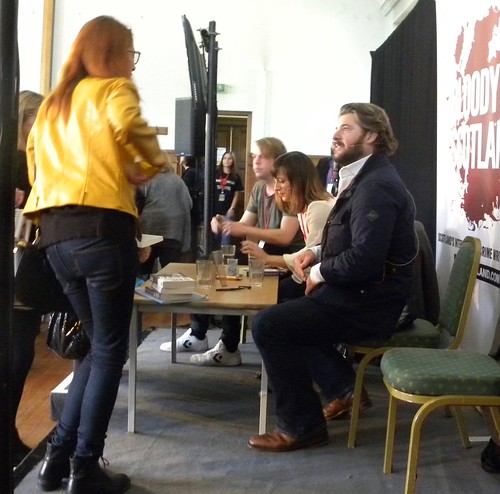
It seems Will is very keen on ‘sweeties’ and on hearing this Johana emptied out her handbag of a pile of sweets, whereas Christoffer only had cigarettes to offer.
There is folklore in Will’s books; he can’t leave the forest’s mushrooms and bears and elks alone, and his brother-in-law has met a troll… Of course he has. Similarly, Johana discovered a book about Jack the Ripper which placed one of his victims in Falkenberg, where her Kalles Kaviar-eating husband is from. So that had to become a crime novel. And Christoffer might write more crime after his Leo Junker series, but his next book is set very near his parents’ house outside Halmstad, and it’s a ‘very good book.’
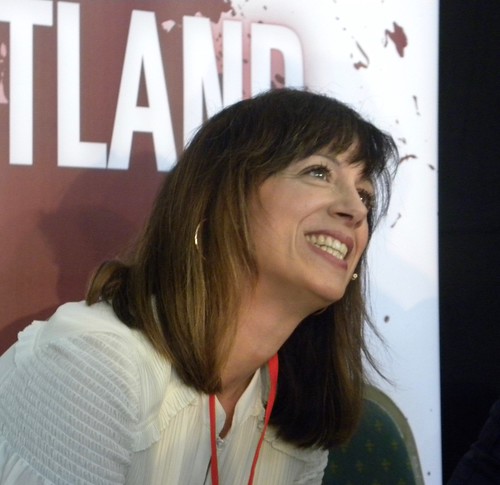
Johana had much to say about us Swedes, and not just on the cod roe issue, but the Scandi hugs, where people hug those they meet for the first time. Having to take your beautifully chosen shoes off indoors, ruining the effect of your beautiful dress – [she] ‘needs to wear her effing shoes!’ – and the question whether Swedes have vegetables (mothers always worry, don’t they?). Then there is ‘lagom,’ and maybe she has said too much, but this was her first weekend away from her young children.
This was a hard act to follow, and Will sensibly didn’t try. It seems his mother-in-law doesn’t like his books… Too negative, they are. Tuva hates the woods. (I’m right with you, dear.) On a brighter note, a deaf member of the audience complimented Will on getting Tuva’s deafness spot-on.
Finally, Christoffer was permitted to have his say, and he reckons that all Swedish crime writers know each other, read each other’s books and they all live in Bromma. They all write the same. So these two fake Swedes are bringing some much needed outside perspective into all this.
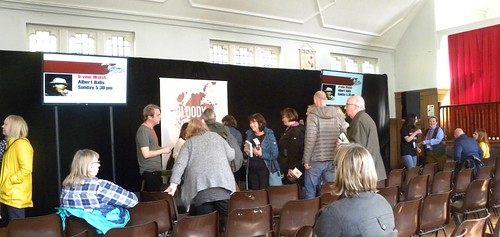
By now we’d over-run by ten minutes and the audience wanted more, but we still had to finish. Long and slow queues to chat to the three meant that we were in danger of never leaving, and with the audience for the next event queueing outside, Christoffer was the last man standing and practically had to be kicked out, where he duly lit a cigarette…
It’s tough being popular, isn’t it?
Our truly multilingual chair Jacky chatted in Spanish, as well as Swedish, and even some English, and before departing she wished me ‘hasta luego.’ I can’t wait.


